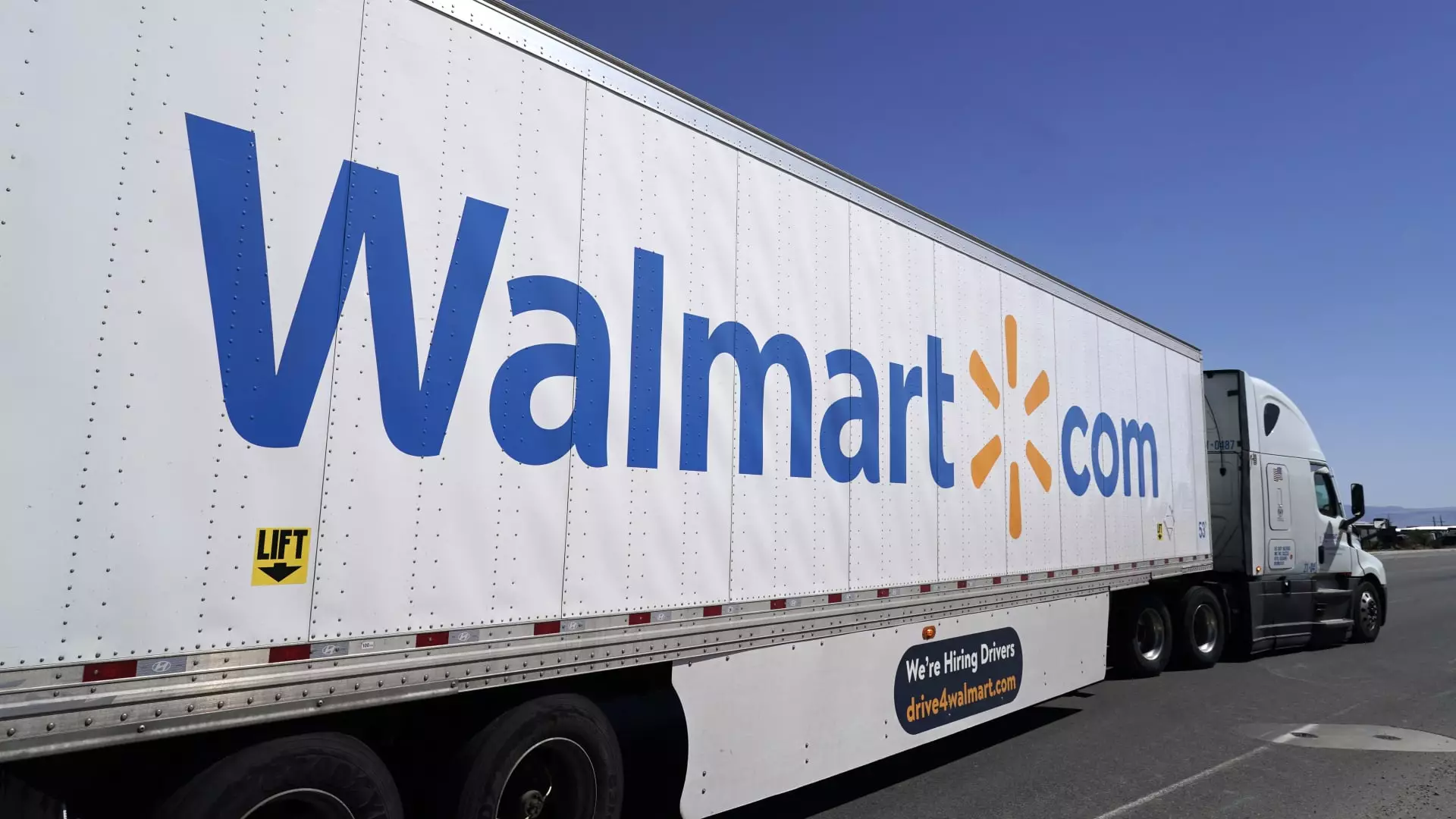The recent lawsuit filed by the Consumer Financial Protection Bureau (CFPB) against retail giant Walmart and the work-scheduling platform Branch Messenger has raised significant eyebrows regarding the treatment of gig economy workers. The CFPB’s allegations suggest that Walmart and Branch have concocted a scheme that not only restricts driver autonomy but also exploits them financially. This case represents a critical moment in how we view the rights and compensation of gig workers, particularly in relation to platform-driven employment models.
According to the CFPB’s complaint, Walmart and Branch Messenger created a system that compelled delivery drivers to utilize substandard and high-fee accounts managed by theBranch platform for their financial transactions. The accusation claims these accounts, set up without the drivers’ explicit consent, resulted in the drivers incurring significant fees—reported to be over $10 million—which the CFPB categorizes as “junk fees.” Such fees, primarily associated with fund transfers and access delays, raise ethical questions about the integrity of payment systems used in gig work.
Rohit Chopra, the director of the CFPB, emphasized the misleading information relayed to the drivers, stating that they were allegedly coerced into using these accounts with the threat of job loss. This manipulation not only undermines the workers’ financial stability but also questions the foundational ethics of the gig economy’s operational strategies.
In contrast to the allegations made by the CFPB, Walmart has vehemently denied the claims, arguing that the lawsuit is filled with inaccuracies and fails to portray a fair account of the situation. This instance brings to light the broader issue of accountability within large corporations when faced with regulatory scrutiny. Walmart’s spokesperson indicated that they were not afforded an adequate opportunity to defend their practices during the investigation by the CFPB, a claim that raises concerns about the conduct of regulatory bodies in ensuring just processes.
Branch Messenger’s response similarly reasserted its position, claiming that the CFPB’s statement misrepresented the facts. The company argues that it has maintained its due diligence in managing driver accounts and abiding by the law, further complicating the narrative surrounding the allegations.
The resolution of this lawsuit has broader implications, not just for Walmart and Branch but for the gig economy as a whole. As more people rely on gig platforms for income, the outcomes of regulatory investigations can set critical precedents regarding worker rights and corporate practices in the gig economy.
This lawsuit adds to a growing list of legal actions taken by the CFPB against various financial institutions and gig economy players. Earlier cases, such as the lawsuit against Comerica Bank for its mishandling of federal benefits and the complaints targeting major banks over Zelle’s fraud complaint procedures, highlight a trend in which consumer protections are being increasingly championed by regulatory bodies.
Such concerted efforts reflect an urgent need for stricter regulations surrounding digital financial transactions and platforms that utilize gig workers, as the rapid growth of the gig economy has often outpaced existing regulatory frameworks. The challenge lies in crafting legislation that safeguards workers from exploitation without inadvertently stifling innovative business models.
As the dust settles on this high-profile complaint, one thing is clear: the financial mechanics behind gig work are under the microscope. The actions of the CFPB may not only dictate the future practices of Walmart and Branch Messenger but also serve as a catalyst for broader reforms aimed at protecting gig workers from deceptive and costly financial practices.
This case should prompt other companies operating within the gig economy to evaluate their payment structures and labor practices. A call for transparency and fairness is becoming an undeniable imperative, not just for compliance, but for fostering a sustainable and equitable gig economy that values the contributions of its workers.
As the CFPB continues to challenge practices that undermine workers’ financial well-being, the outcomes of this lawsuit will undoubtedly reverberate throughout the corporate landscape, prompting companies to consider the ethical implications of their financial systems and their treatment of gig workers in an increasingly digital economy.

